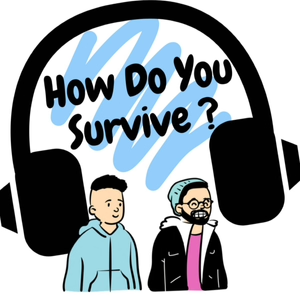
Nurturing Executive Functioning Skills: A Deep Dive with Tera Sumpter, SLP
09/28/23 • 66 min
Welcome back to another episode of "Don't IEP Alone"! In today's episode, we dive into the fascinating topic of executive functioning with the incredibly knowledgeable Tera Sumpter, SLP. Tera, who likes to think of things in terms of growth and planting, shares her insights and strategies for developing and supporting executive functioning skills in children.
She categorizes these skills into roots, stems, and flowers, highlighting the importance of prioritizing and organizing skills as the "flowers" that bloom when there is a strong foundation of roots and stems.
One of the key themes discussed in this episode is the crucial role of perception and awareness in building a strong root system, followed by attention and other essential skills in the stem. Tera also delves into the importance of choosing a highly recommended professional to assess executive function and suggests that a dynamic assessment, which includes observing performance and processing in different domains, is the most effective approach.
Listen in as Tera shares tips for fostering foresight, understanding nonverbal working memory, and the significance of a team approach in addressing executive functioning difficulties.
We also explore the connection between executive function and various specialties, such as speech and language development, literacy, mathematics, and emotional regulation. Tera offers invaluable insights for parents, educators, and professionals, stressing the need for knowledge and integration of executive function into everyday practices.
Additionally, Tera provides practical strategies for supporting executive function development in and outside the classroom. So, whether you're a parent seeking guidance, an advocate for change, or simply interested in understanding executive functioning
Don't IEP Alone with Lisa Lightner, Special Education Advocate
The IEP process never gets easier. YOU get better.
How? With specific action steps and training.
Visit ADayInOurShoes.org for more information.
Thank you for listening to this episode of Don't IEP Alone. See you next time!
📣 Exciting News! You can now preorder my book on Amazon, Books-A-Million, Bookshop.org or Barnes & Noble! 📣
📚 Bookshop.org has it on sale! 📚
More IEP help for you--at home or at school--
📊 Free IEP Data Collection Sheets (for school staff)
☑️ IEP Goal Tracking Sheets for Parents
🙋 Ask an Advocate your IEP Question
🧰 ...
Welcome back to another episode of "Don't IEP Alone"! In today's episode, we dive into the fascinating topic of executive functioning with the incredibly knowledgeable Tera Sumpter, SLP. Tera, who likes to think of things in terms of growth and planting, shares her insights and strategies for developing and supporting executive functioning skills in children.
She categorizes these skills into roots, stems, and flowers, highlighting the importance of prioritizing and organizing skills as the "flowers" that bloom when there is a strong foundation of roots and stems.
One of the key themes discussed in this episode is the crucial role of perception and awareness in building a strong root system, followed by attention and other essential skills in the stem. Tera also delves into the importance of choosing a highly recommended professional to assess executive function and suggests that a dynamic assessment, which includes observing performance and processing in different domains, is the most effective approach.
Listen in as Tera shares tips for fostering foresight, understanding nonverbal working memory, and the significance of a team approach in addressing executive functioning difficulties.
We also explore the connection between executive function and various specialties, such as speech and language development, literacy, mathematics, and emotional regulation. Tera offers invaluable insights for parents, educators, and professionals, stressing the need for knowledge and integration of executive function into everyday practices.
Additionally, Tera provides practical strategies for supporting executive function development in and outside the classroom. So, whether you're a parent seeking guidance, an advocate for change, or simply interested in understanding executive functioning
Don't IEP Alone with Lisa Lightner, Special Education Advocate
The IEP process never gets easier. YOU get better.
How? With specific action steps and training.
Visit ADayInOurShoes.org for more information.
Thank you for listening to this episode of Don't IEP Alone. See you next time!
📣 Exciting News! You can now preorder my book on Amazon, Books-A-Million, Bookshop.org or Barnes & Noble! 📣
📚 Bookshop.org has it on sale! 📚
More IEP help for you--at home or at school--
📊 Free IEP Data Collection Sheets (for school staff)
☑️ IEP Goal Tracking Sheets for Parents
🙋 Ask an Advocate your IEP Question
🧰 ...
Previous Episode

Conversations with Child Psychologist Elliott Jaffa: Navigating Teen Behavior and Building People Skills
Elliott Jaffa
Dr. Elliott B. Jaffa Associates
Arlington, VA
[email protected]
703-931-0040
00:02:15 The goal is to catch kids being good. Ask what they learned instead of "how was school?" Praise observable behaviors, not physical appearance. Parents struggle with the language of positivity.
00:06:18 The speaker asks an easy question, but with language restrictions. They then ask if the listener's hand is bleeding, questioning the validity of the question.
00:09:34 Cows drink water, not milk. The focus should be on positive communication and listening with children.
00:12:42 A therapist challenges children to quit school and express their dislike towards teachers and principals.
00:17:56 Author dislikes phone use while driving; suggests penalties for hitting pedestrians distracted by phones. Author also dislikes phone use during business meetings; prefers clients who are not attached to their phones. Author personally does not use phone much, except for emergencies or coordinating plans. Recommends using phones for educational purposes.
00:20:19 The text discusses using the internet to learn and earn phone time for educational purposes.
00:23:35 The author discusses their interactions with children and the impact of their conversations.
00:27:37 The speaker plans to provide information on how to find doctor Jaffa through a podcast listing, email, and Facebook.
Don't IEP Alone with Lisa Lightner, Special Education Advocate
The IEP process never gets easier. YOU get better.
How? With specific action steps and training.
Visit ADayInOurShoes.org for more information.
Thank you for listening to this episode of Don't IEP Alone. See you next time!
📣 Exciting News! You can now preorder my book on Amazon, Books-A-Million, Bookshop.org or Barnes & Noble! 📣
📚 Bookshop.org has it on sale! 📚
More IEP help for you--at home or at school--
📊 Free IEP Data Collection Sheets (for school staff)
☑️ IEP Goal Tracking Sheets for Parents
🙋 Ask an Advocate your IEP Question
🧰 ...
Next Episode

Uncovering the Hidden Link: How Speech and Language Disorders Connect to Juvenile Confinement with Dr. Shameka Stewart, Juvenile Forensic SLP
00:02:30 Youth facing adult charges, reviewing records and assessing language and cognition to align with charges. Discussing impact of disorder on ability to meet elements.
00:05:19 Parents should familiarize themselves with special education laws and their rights to ensure their child receives appropriate services and not agree to anything they feel is wrong.
00:07:34 The term "school to prison" refers to the transition of youth from schools to the criminal justice system. It emphasizes the need for intervention at various points before reaching prison and acknowledges the significance of confinement in juvenile detention.
00:10:26 Carve is an acronym for setting realistic, relevant, and culturally applicable goals.
00:17:08 Recognizing diverse perspectives on trauma and advocating for proper evaluations to determine its impact on individuals.
00:19:58 The mission is to help kids and their parents communicate and understand. The speaker is a forensic speech and language pathologist available for questions and concerns.
Dr. Shameka Stewart is an Associate Professor of Communication Sciences and Disorders and the first and only Juvenile Forensic Speech-Language Pathologist(r).
Dr. Stewart’s clinical and scholarly work specializes in Juvenile Forensics, Law Enforcement Interaction with youth with CD, child language disorders and augmentative and alternative communication (AAC).
Instagram: @drjuvenile_forensicslp
Website: https://www.juvforensicslp.com/
Shameka Stewart., Ph.D., CCC-SLP/L
Juvenile Forensic Speech-Language Pathologist
Child Language Disorders Specialist
Associate Professor, Communication Sciences & Disorders
Don't IEP Alone with Lisa Lightner, Special Education Advocate
Thank you for listening to this episode of Don't IEP Alone. See you next time!
📣 Exciting News! You can now preorder my book on Amazon, Books-A-Million, Bookshop.org or Barnes & Noble! 📣
📚 Bookshop.org has it on sale! 📚
More IEP help for you--at home or at school--
📊 Free IEP Data Collection Sheets (for school staff)
☑️ IEP Goal Tracking Sheets for Parents
🙋 Ask an Advocate your IEP Question
🧰 ...
If you like this episode you’ll love
Episode Comments
Generate a badge
Get a badge for your website that links back to this episode
<a href="https://goodpods.com/podcasts/dont-iep-alone-127379/nurturing-executive-functioning-skills-a-deep-dive-with-tera-sumpter-s-34139639"> <img src="https://storage.googleapis.com/goodpods-images-bucket/badges/generic-badge-1.svg" alt="listen to nurturing executive functioning skills: a deep dive with tera sumpter, slp on goodpods" style="width: 225px" /> </a>
Copy




